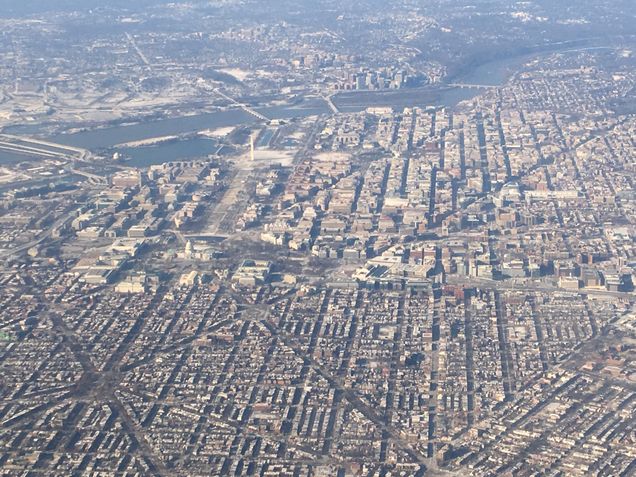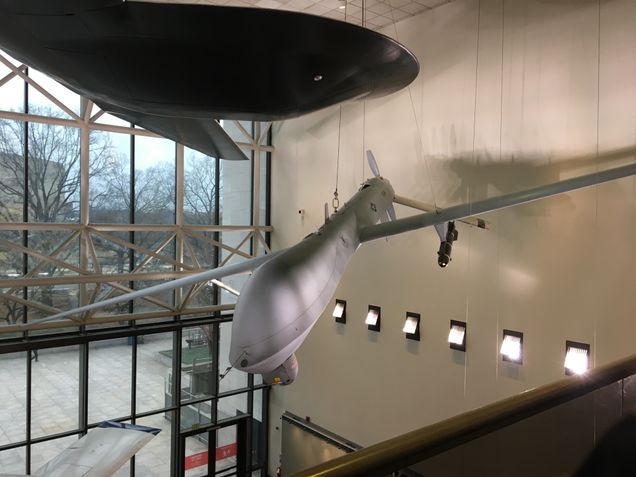D.C. from Above and Beyond
by Brian Monroy (Spring 2017)
The image of Washington in the popular imagination is often that of Roman arches and limestone structures dominating the city’s low skyline. It feels like the entire city is sacred ground, from the monuments to founding fathers to the walls and statues commemorating the sacrifices of many generations of Americans. These icons add to the grandeur of Washington and to the country it represents. They stand as symbols to the entire world of American status, progress, and prestige.

A view of D.C. from an MQ-1 might look like this.
Washington is a global city, not just in its diverse population and mixture of various cultures, but in what actually occurs here. Home to the United States federal government, Washington creates policy every day, and these policies have inherent power through their ability to instantly influence the decisions and behaviors of other countries, groups, entities around the world. And this influence stems not only from the Hill, but from a complex web of policymakers, analysts, academics, businesses, and experts that make up D.C.’s vast foreign policy community, a community that I have had the chance to immerse myself in this past semester.
My internship experience at the Stimson Center has given me a firsthand look at the inner-workings of this community. I’ve met with experts who share my passion for the study of defense and national security policy, an issue that has been especially prominent in the first few months of the new Administration. The events I have attended both at Stimson and at other think tanks around the city, have offered unique perspectives on how policies and actions taken today will contribute to the international environment of tomorrow. It is incredible looking back and thinking just how much I have learned this semester.
Foreign policy, even U.S. foreign policy, ironically isn’t a subject that is frequently on the minds of many Americans outside of the D.C. bubble of experts. I have discovered about myself that I’m not only passionate about issues of foreign policy, but also advocating for increased study of the subject, and making it more accessible to the non-expert community of everyday Americans. The tumultuous first months of the new presidency, if nothing else, have successfully ignited conversation and curiosity around these and many other issues. If this trend continues, it will go a long way to bridge the divide between the two groups of people, who inhabit the same city.

An MQ-1 Predator drone on display at the National Air and Space Museum gives visitors a firsthand look at a symbol of American foreign policy.
On a trip to the Smithsonian National Air and Space Museum, I saw on display a decommissioned MQ-1 Predator drone, a now infamous symbol of the controversy and passion that international issues can stir up. Too much of the population has been missing this passion. It’s not about where people stand on these issues that’s important, it’s their decision to take the time to learn about these complex issues in the first place.
Brian Monroy is earning a BA in political science and is passionate about becoming more involved in the D.C. foreign policy community and making it more accessible and diverse.

